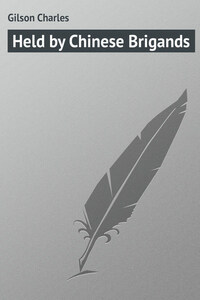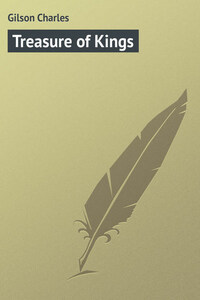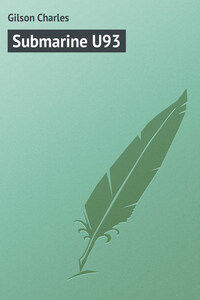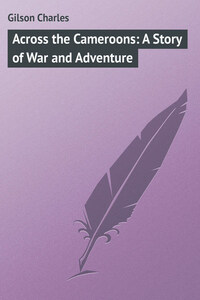CHAPTER I-HOW HENNESSY K. WALDRON "TRIPPED AROUND"
We have heard it said, by those who are widely travelled, that there are three beautiful harbours in the world: Rio de Janeiro, in Brazil; Sydney Harbour, and-most beautiful of all-the harbour of Hong-Kong.
The famous Peak rises above the town of Victoria and, at a height of about two thousand feet, buries its crest in the clouds. The harbour itself is in the shape of a crescent, enclosing the red, bare hills of Kow-lung. By day, from Lyemun to Stonecutter's Island, ferry-boats, sampans, wupans and launches scurry here and there, in and out among the great anchored men-of-war, like so many mice romping in a cage of sleeping tigers.
The slopes of the mountain are green with palm-trees, mango, orange and lichen, in the midst of which can be seen innumerable white, flat-roofed villas, each with its upper-story verandah and green-latticed windows. To the east the hills are more rugged; streams, traced through the glens by straggling brushwood, descend in a succession of waterfalls to the level of the sea. In the Pass of Lyemun the traveller finds himself in the midst of an inhospitable grandeur, similar to that of the western Scottish isles.
It is, however, by night that Hong-Kong Harbour is at its best. With a sky of a million stars, and the pale, round China moon hanging like a lantern in the midst of the heavens, reflecting its light upon the surface of the dark, tranquil water, the moving lights upon thesampans and the countless lanterns in the streets of China town, this place is surely one of the most romantic in the world. Here the Far East and the West touch; it is the one place in all China where the foothold of the European is secure.
Upon this beautiful island, with its rugged hills and feathery palms, the white man stands, under his own flag-as it were, upon the very threshold of the mysterious, eternal "Middle Kingdom." Over the way, to the north-west, is the great estuary of the Canton river, the Chau-kiang-the main trade highway of the south. Canton itself, a city of two and a half million inhabitants, lies at the junction of three rivers, which meet almost at right angles: the first flowing from the east, the second from the north, and the third-and greatest-from the west. Canton is a city of mysteries and marvels; it is a city of many industries, insufferable heat, intolerable smells, and almost unbelievable devilry and crime.
The whole of the great province of Kwangsi and the eastern portion of Yunnan is drained by the West River and its hundreds of tributaries. These tributaries for the most part find their sources upon the watershed of the Nan-ling Mountains, which extend from the Tung-ting Lake to the city of Kin-yuen, a distance of over five hundred miles.
Of that great stretch of country little or nothing is known. Thanks to the early Jesuit explorers, we are provided with excellent maps. But a map is no more than a coloured piece of paper which-at the best-is backed with linen. Names in themselves convey nothing. Though you study the map of China for a fortnight you will know less of the Si-kiang, or West River, than the naval lieutenant who ran his gunboat past Wu-chau, and blew the mud huts of a pirate village into a dust-heap with the pound-and-a-half shells of his Maxim-Nordenfeldt. For, if to this day there are wild men anywhere upon the face of the earth, who know neither mercy nor pity nor the laws of God or man, they are to be found in the tract of country that lies between the West River and the Nan-ling Mountains to the north. And thither we are about to journey, into the midst of a land that is by no means a wilderness, but which is populated for the most part by peaceable, hard-working peasants.
There are, however, certain members of the community who are neither peaceable nor industrious, who care no more for the gunboats of His Britannic Majesty upon the wide reaches of the river than they do for the yamen of the Viceroy of Canton, who so terrorise the province that each honest man knows that it is more than his life is worth to give information against them.
The chiefs of these pirates or brigands are, as often as not, highly educated Chinese, sometimes entitled to wear the blue or red button of a mandarin. They hold sway by dint of their cruelty and their cunning.
Such a man was Cheong-Chau, whose headquarters were established in the town of Kong-chin, at the foot of the mountains. Thence he and his men were wont to descend to Pinglo, where they would board a sea-going junk, in which they would steal past Wu-chau to Canton, and thence to the open sea, to rob fishing-junks and sometimes even cargo ships. If they passed a gunboat or destroyer upon the broad waters of the estuary they were simple fishermen, on a cruise to Macao or Amoy. But under their fishing nets and tackle was always a veritable armoury of blood-curdling cutlasses and knives.
For the time being we will leave this cutthroat resting on his ill-gotten wealth, dazed from opium in a filthy den in the city of Pinglo, and return to the sublime and tranquil beauty of the harbour of Hong-Kong. There we are to meet a gentleman of appearance more personable, and personality more engaging, than the redoubtable Cheong-Chau. We refer to Mr Hennessy K. Waldron, of Paradise City, Nevada, U.S.A.











